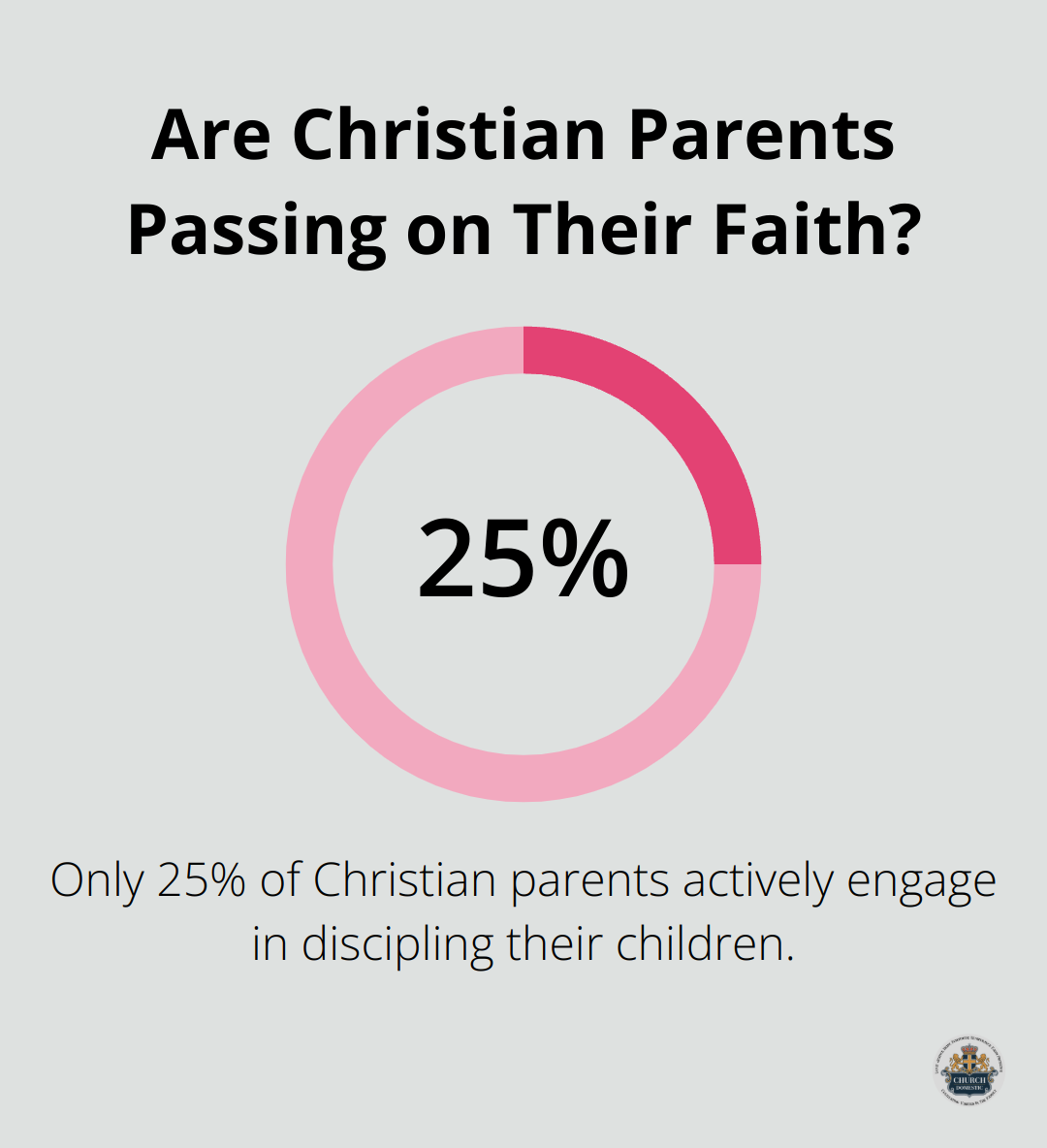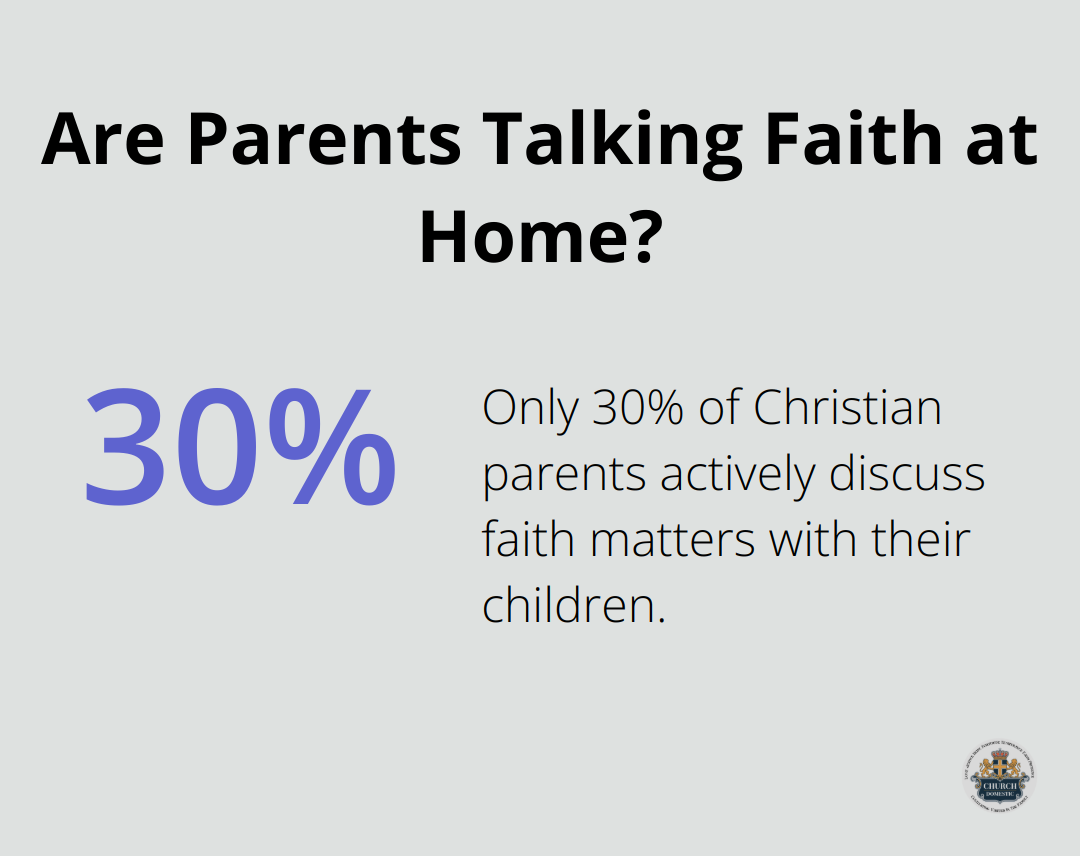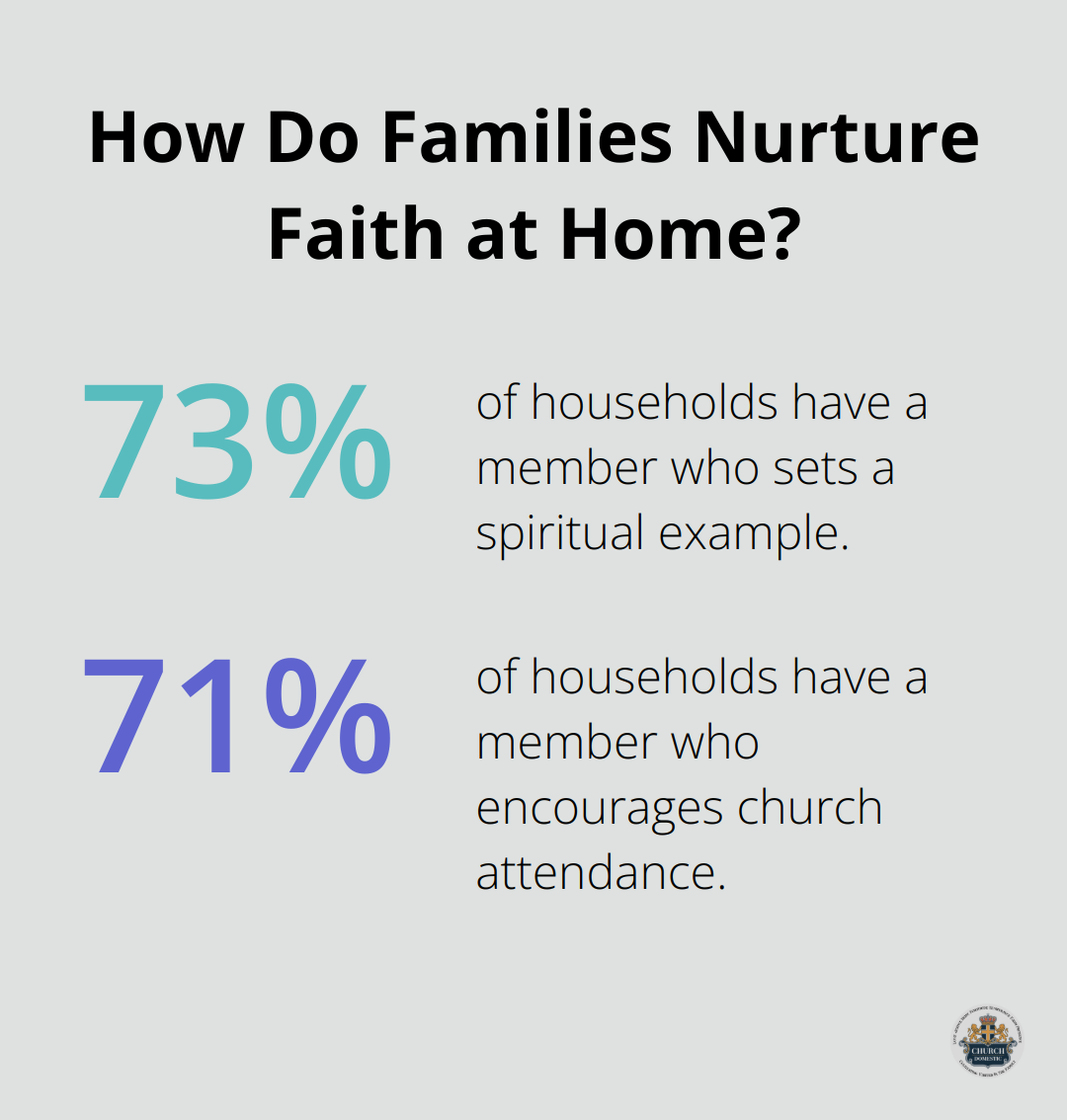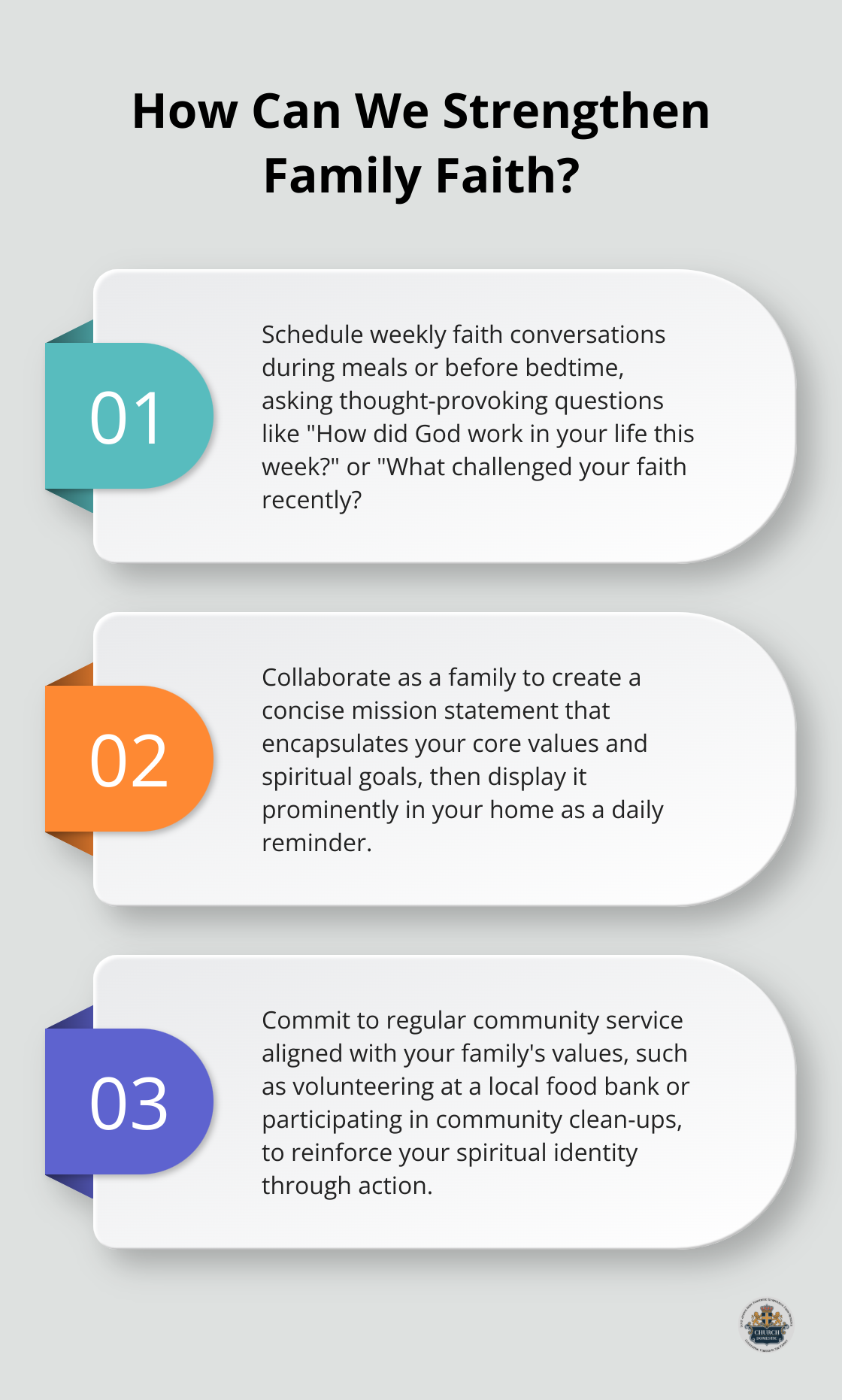At Church Domestic, we believe family values are the cornerstone of a strong household. They guide decisions, shape behavior, and create a shared sense of purpose.
But how do you define and live by these values in your daily life? This post will show you practical steps to identify, implement, and nurture your family’s core values.
What Are Family Core Values?
The Foundation of Family Identity
Family core values form the fundamental principles that guide your family’s behavior, decisions, and interactions. These values act as the bedrock of your family’s identity, influencing how you relate to each other and the world around you.
Your Family’s North Star
Core values function as your family’s North Star. They’re not abstract concepts, but practical guidelines that influence daily choices. If honesty is a core value, it might mean always telling the truth, even in difficult situations. If respect is key, it could translate to listening attentively when family members speak.
The Strength of Shared Beliefs
Establishing core values creates a shared language and understanding within your family. It’s like having an internal compass that everyone can refer to when faced with decisions or challenges.

For instance, if education is a core value, it might influence how you prioritize homework, choose extracurricular activities, or even plan family vacations. If environmental stewardship is important, it could affect your recycling habits, shopping choices, or community involvement.
Crafting a Unique Family Culture
Your core values make your family unique. They reflect your beliefs, priorities, and aspirations. By clearly defining these values, you create a distinct family culture that can be passed down through generations.
An Evolving Process
Defining your family’s core values isn’t a one-time event. It’s an ongoing process that evolves as your family grows and changes. Regular discussions about your values can help ensure they remain relevant and meaningful to all family members.
Many families (including those in our Church Domestic community) have transformed their relationships and daily lives by intentionally defining and living their core values. It’s a powerful tool for creating a strong, united family that can weather life’s challenges together.
Now that we understand what family core values are and why they matter, let’s explore how to identify these values for your own family.
How to Uncover Your Family’s Core Values
Start with Individual Reflection
Begin the process by asking each family member to reflect on their personal values. Provide questions like:
- What matters most to you in life?
- Which qualities do you admire in others?
- What are your proudest moments as a family?
- Which behaviors or actions disappoint or upset you?

This individual reflection helps each person clarify their own values before the family comes together.
Facilitate Family Discussions
After individual reflection, gather as a family to share and discuss thoughts. Create a safe, judgment-free space where all family members (including children) feel comfortable expressing their ideas.
Use these prompts to guide the conversation:
- What do we want our family to be known for?
- How do we want to treat each other and others outside our family?
- Which traditions or activities are most meaningful to us?
- What goals do we have as a family?
Listen actively and encourage elaboration on ideas that resonate with multiple family members.
Prioritize and Select Key Values
Your discussions will likely produce a long list of potential values. The next step involves narrowing it down to a manageable set of core values.
Prioritize and select key values by focusing on those that your family feels they couldn’t live without. The exact number isn’t important; what matters is that they truly represent your family.
Try this effective method: Have each family member rank the values in order of importance. Compare rankings and look for commonalities. Discuss any significant differences and try to reach a consensus.
Another approach groups similar values together and chooses an overarching term that encompasses them. For example, “honesty,” “integrity,” and “transparency” might fall under “truthfulness.”
(There’s no one-size-fits-all set of family values. What matters is that your chosen values authentically represent your family’s beliefs and aspirations.)
Test Your Values
Once you’ve selected your core values, put them to the test. Ask yourselves:
- Do these values guide our daily decisions and actions?
- Are we comfortable sharing these values with others?
- Do these values inspire and motivate us?
If the answer to any of these questions is no, you might need to revisit your selection process.
Document and Display Your Values
Write down your family’s core values in a clear, concise manner. Consider creating a family values statement or a visual representation that you can display in your home.
(Families often get creative with this step – from crafting beautiful artwork to designing family crests that represent their values.) The key is to make your values visible and present in your daily lives.
The process of identifying your family’s core values sets the foundation for living them out. The next section will explore practical ways to implement these values in your family’s daily life.
Living Your Family Values Every Day
Create a Family Mission Statement
Start by crafting a family mission statement that encapsulates your core values. This statement sets out your family’s core values and helps you decide what really matters to you. For example, “Our family strives to love deeply, learn constantly, and serve others joyfully.”

Display this mission statement prominently in your home – perhaps on the refrigerator or as a framed piece of art in the living room. This constant visual reminder helps keep your values at the forefront of everyone’s minds.
Weave Values into Daily Routines
Incorporate your family values into your everyday routines. If kindness is a core value, start each day by asking family members to share one kind act they plan to do. If gratitude is important, end each day with a family gratitude circle where everyone shares something they’re thankful for.
For families that value environmental stewardship, make recycling and energy conservation part of your daily habits. Set up clearly labeled recycling bins and involve children in the sorting process. Make it a family rule to turn off lights when leaving a room.
Lead by Example
Children learn more from what we do than what we say. As parents, it’s crucial to embody the values you want to instill. If honesty is a core value, admit your mistakes openly and apologize when you’re wrong. If respect is important, demonstrate it in your interactions with your spouse, children, and others.
Research provides evidence that children may adopt behaviors and cognitions by observing these features in their parents. This underscores the importance of modeling the values we want our children to adopt.
Have Regular Family Meetings
Schedule weekly or bi-weekly family meetings to discuss how you’re living out your values. Use this time to celebrate successes, address challenges, and brainstorm ways to better align your actions with your values.
During these meetings, encourage open communication. Ask questions like, “How did we demonstrate our value of compassion this week?” or “What opportunities did we miss to show respect?” This fosters accountability and keeps your values active in everyone’s minds.
Create Value-Based Traditions
Develop family traditions that reinforce your core values. If community service is important to your family, establish an annual day of volunteering together. If you value education, create a tradition of visiting a new museum or historical site during each family vacation.
Living your family values requires consistent effort and regular reflection. The rewards – a stronger family bond, clearer decision-making, and a shared sense of purpose – make it worthwhile. Many families transform their relationships and daily lives by intentionally living their core values. Your family can experience this transformation too.
Final Thoughts
Defining and living family values strengthens bonds, guides decisions, and creates a shared purpose. This transformative journey lays the foundation for a more intentional and fulfilling life together. Your family’s core values will evolve as you grow and change, so regular reflection and open discussions are essential.

We encourage you to start this valuable process today. The journey of living your family values may present challenges, but the rewards are immeasurable. A strong family culture, clearer decision-making, and a shared sense of identity await you.
At Church Domestic, we’re passionate about helping families thrive. We’d love to hear about your experiences in defining and living your family values. (Your insights could inspire and guide other families on their own journeys.)